 In the world of litigation, there are often cases that raise questions about who should be held responsible for damages caused by certain events. Take the recent case of Christopher Blanchard, who claimed damages after his police car was hit by a stolen car. The trial court granted summary judgment in favor of the defendants, GoAuto Insurance Company and its insured, Demetrius J. Hicks, dismissing Blanchard’s claim for damages. The court ruled that Hicks, the vehicle’s owner, was not liable for the damages caused by an unknown thief who stole his truck and crashed it into Blanchard’s police car. To better understand how this came about, let us examine the facts and legal arguments of the case and explore the court’s reasoning for upholding the verdict.
In the world of litigation, there are often cases that raise questions about who should be held responsible for damages caused by certain events. Take the recent case of Christopher Blanchard, who claimed damages after his police car was hit by a stolen car. The trial court granted summary judgment in favor of the defendants, GoAuto Insurance Company and its insured, Demetrius J. Hicks, dismissing Blanchard’s claim for damages. The court ruled that Hicks, the vehicle’s owner, was not liable for the damages caused by an unknown thief who stole his truck and crashed it into Blanchard’s police car. To better understand how this came about, let us examine the facts and legal arguments of the case and explore the court’s reasoning for upholding the verdict.
The undisputed facts are as follows: Demetrius J. Hicks, a carpenter and subcontractor, parked his truck in front of a house he was inspecting, leaving the keys in the ignition and the engine running. Within minutes, an unknown thief stole the truck and drove off. Hicks tried to stop the thief but was unsuccessful. Eventually, the thief abandoned the truck behind Blanchard’s patrol car and fled on foot. The stolen truck collided with the police car, causing damage.
Blanchard filed a lawsuit against Hicks and GoAuto, the insurance company, seeking compensation for the accident. Hicks and GoAuto denied liability, claiming that Hicks’ truck had been stolen and the thief was responsible for the accident. The trial court granted summary judgment in favor of the defendants, dismissing Blanchard’s claims with prejudice.
 Louisiana Personal Injury Lawyer Blog
Louisiana Personal Injury Lawyer Blog


 Licensed and professional commercial truck drivers usually carry heavy materials on their journey. Keeping these materials secured for any type of roadway issue is paramount. But what happens when these large trucks roll over and you think the weight shift was due to faulty or improper packaging? The Fifth Circuit Court of Appeals addresses the question as to whether there is enough evidence to bring a claim for a packaging malfunction that leaves you injured.
Licensed and professional commercial truck drivers usually carry heavy materials on their journey. Keeping these materials secured for any type of roadway issue is paramount. But what happens when these large trucks roll over and you think the weight shift was due to faulty or improper packaging? The Fifth Circuit Court of Appeals addresses the question as to whether there is enough evidence to bring a claim for a packaging malfunction that leaves you injured.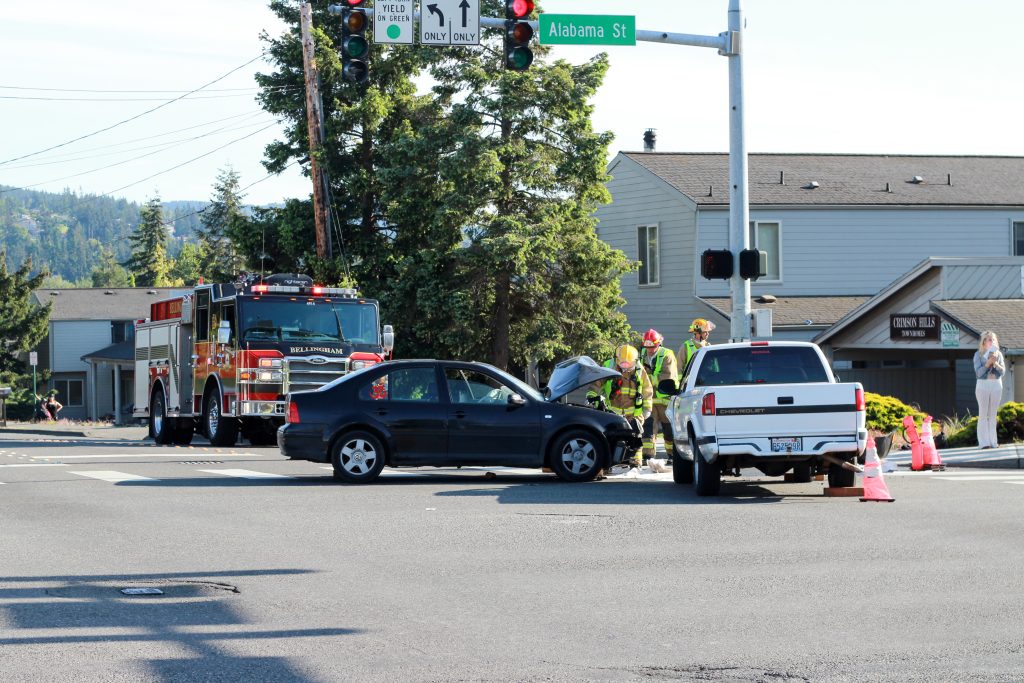 Ordinarily, when one is involved in an automobile accident, the injured party files a claim with the at-fault driver’s insurance company. When a person is involved in an accident with a co-worker in the course of their employment duties, however, the injured party may collect workers’ compensation instead. Can the injured employee “double-dip” and also collect under a Uninsured/underinsured motorist policy? This was the issue in a recent case out of Delcambre, Louisiana.
Ordinarily, when one is involved in an automobile accident, the injured party files a claim with the at-fault driver’s insurance company. When a person is involved in an accident with a co-worker in the course of their employment duties, however, the injured party may collect workers’ compensation instead. Can the injured employee “double-dip” and also collect under a Uninsured/underinsured motorist policy? This was the issue in a recent case out of Delcambre, Louisiana.  It’s pretty common for large corporations to conduct business across multiple state lines. So, too, it’s expected that employees for these types of companies will also have connections with multiple states based on their employment with the corporation. In these situations determining which state and Court has jurisdiction over legal claims when such issues arise can become an incredibly fact-specific inquiry. This was the case for one Workers’ Compensation Judge (“WCJ”), who found that the Office of Workers’ Compensation (“OWC”) located in Lafayette, Louisiana had subject matter jurisdiction to decide the legal claims of a former Tyson-employed truck driver.
It’s pretty common for large corporations to conduct business across multiple state lines. So, too, it’s expected that employees for these types of companies will also have connections with multiple states based on their employment with the corporation. In these situations determining which state and Court has jurisdiction over legal claims when such issues arise can become an incredibly fact-specific inquiry. This was the case for one Workers’ Compensation Judge (“WCJ”), who found that the Office of Workers’ Compensation (“OWC”) located in Lafayette, Louisiana had subject matter jurisdiction to decide the legal claims of a former Tyson-employed truck driver.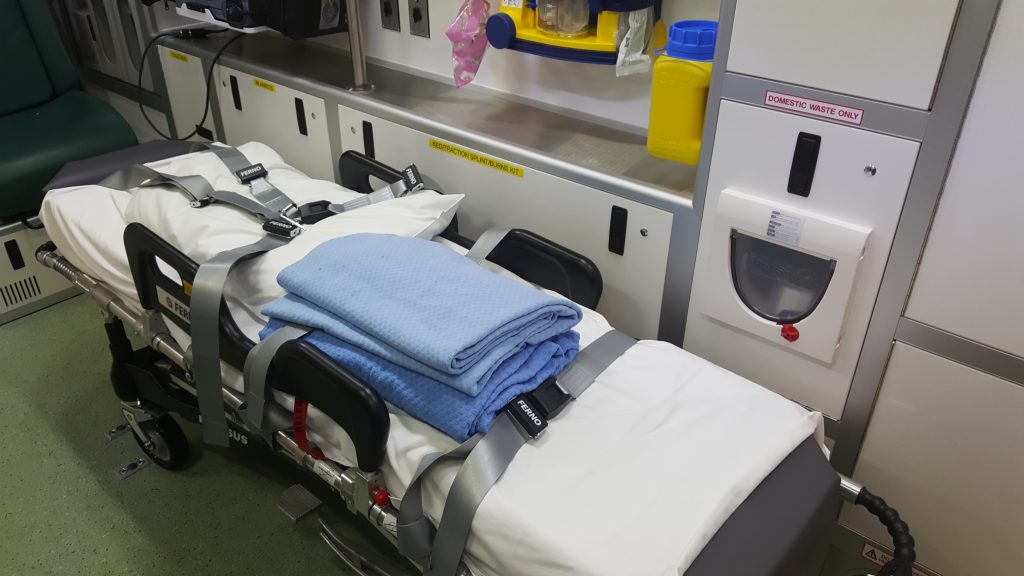 When medical emergencies strike, the rapid response of emergency medical technicians (EMTs) can mean the difference between life and death. However, the high-pressure nature of their role can also give rise to complex legal questions when outcomes take a tragic turn. Richard Miller’s case sheds light on the intricate landscape of EMT liability, illuminating the balance between legal protections afforded to these healthcare professionals and the pursuit of justice for patients and their families. It also helps answer the question: Can an emergency medical technician or their employer be held liable when things go wrong?
When medical emergencies strike, the rapid response of emergency medical technicians (EMTs) can mean the difference between life and death. However, the high-pressure nature of their role can also give rise to complex legal questions when outcomes take a tragic turn. Richard Miller’s case sheds light on the intricate landscape of EMT liability, illuminating the balance between legal protections afforded to these healthcare professionals and the pursuit of justice for patients and their families. It also helps answer the question: Can an emergency medical technician or their employer be held liable when things go wrong? 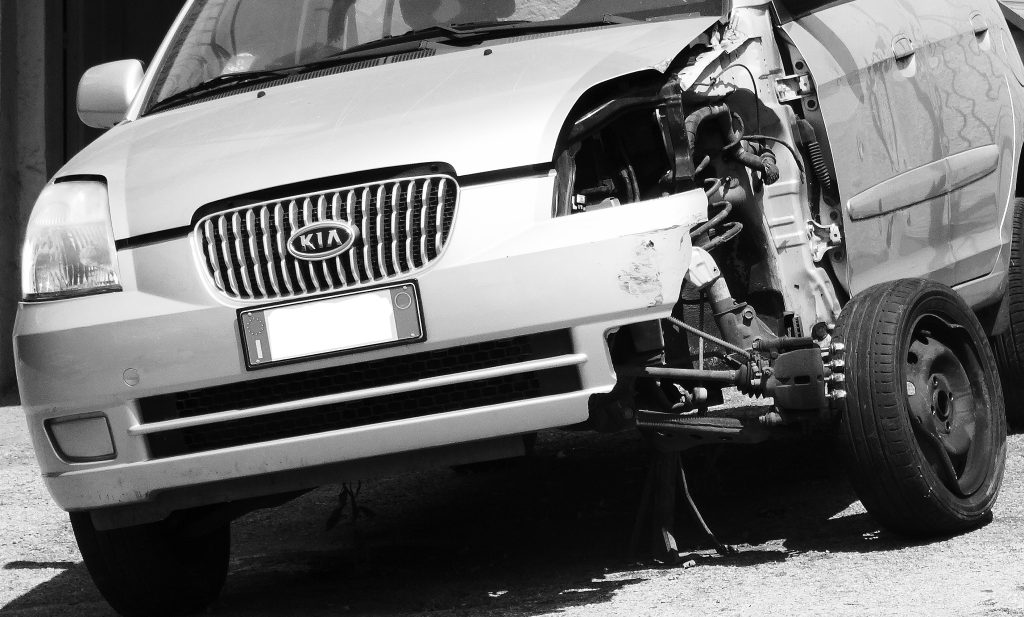 To succeed in a lawsuit, it is not enough that your claim has merit. Rather, you must also comply with sometimes complex procedural requirements. These requirements include strict time limits in which you must file your claim. Otherwise, even if your claim has merit, it could be dismissed because of a peremptory exception of prescription. The following lawsuit involving bad faith insurance claims shows just how critical timely filing and proper crafting of a lawsuit are to preserve all of your claims.
To succeed in a lawsuit, it is not enough that your claim has merit. Rather, you must also comply with sometimes complex procedural requirements. These requirements include strict time limits in which you must file your claim. Otherwise, even if your claim has merit, it could be dismissed because of a peremptory exception of prescription. The following lawsuit involving bad faith insurance claims shows just how critical timely filing and proper crafting of a lawsuit are to preserve all of your claims.  The vibrant spirit of Mardi Gras parades, with their kaleidoscope of colors and joyous revelry, often paints a picture of unadulterated celebration. Yet, beneath the surface of these festivities, unexpected tragedies can unfold, turning the jubilation into a legal labyrinth. Such was the case in Franklin, Louisiana, where a moment of revelry took a distressing turn as a float participant was tragically injured during a parade. What followed was a legal showdown, entangling federal regulations, contractual intricacies, and the question of liability. Amidst the sparkle and confetti, a courtroom drama unfolded, revealing the complex legal considerations surrounding the incident.
The vibrant spirit of Mardi Gras parades, with their kaleidoscope of colors and joyous revelry, often paints a picture of unadulterated celebration. Yet, beneath the surface of these festivities, unexpected tragedies can unfold, turning the jubilation into a legal labyrinth. Such was the case in Franklin, Louisiana, where a moment of revelry took a distressing turn as a float participant was tragically injured during a parade. What followed was a legal showdown, entangling federal regulations, contractual intricacies, and the question of liability. Amidst the sparkle and confetti, a courtroom drama unfolded, revealing the complex legal considerations surrounding the incident. At the end of a trial, you are focused on whether or not the Judge ruled in your favor. However, it is not enough to only know who won the case, especially if you are considering an appeal. This case indicates the importance of paying attention not only to the outcome but also to the language in the final judgment the trial court issues. Louisiana has strict requirements for language that must be included in a final judgment for it to be valid so that an appellate court can hear the appeal.
At the end of a trial, you are focused on whether or not the Judge ruled in your favor. However, it is not enough to only know who won the case, especially if you are considering an appeal. This case indicates the importance of paying attention not only to the outcome but also to the language in the final judgment the trial court issues. Louisiana has strict requirements for language that must be included in a final judgment for it to be valid so that an appellate court can hear the appeal. 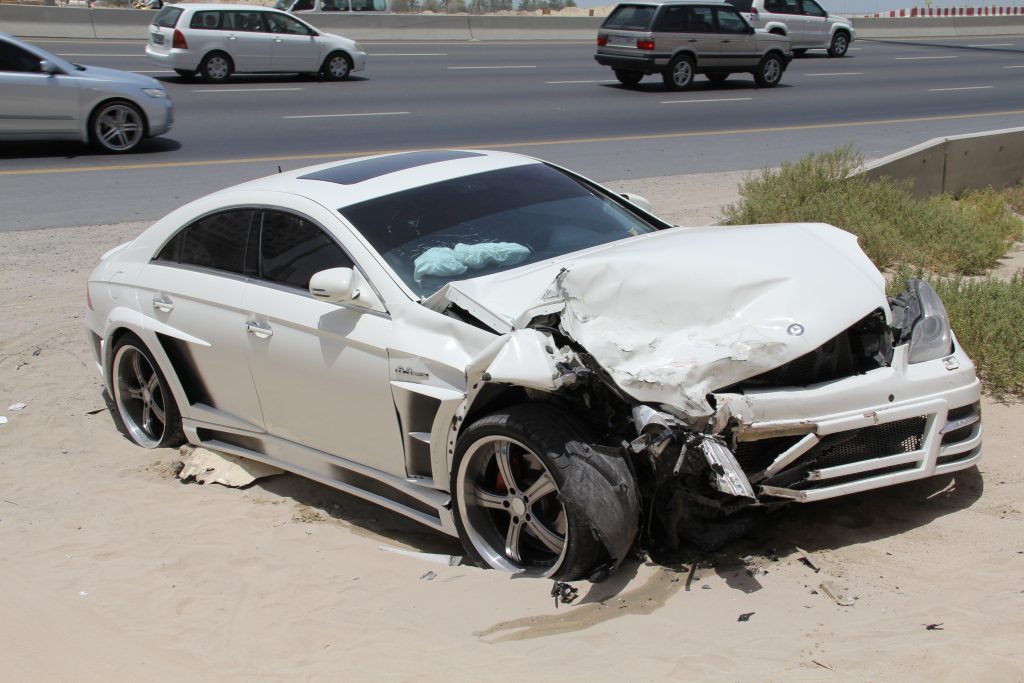 Car accidents can be distressing, and the aftermath becomes even more complex when multiple vehicles are involved. Such was the case with Lisa Watson, Shelley Tannehill, and Melissa Smith after a three-car collision on Interstate-10 in New Orleans. Determining liability in these situations is no easy task, as demonstrated in this legal battle revolving around whether summary judgment was warranted for the dismissal of claims against the driver of the middle car. Let’s delve into the intricacies of this case and highlight the significance of seeking professional legal advice when facing similar situations.
Car accidents can be distressing, and the aftermath becomes even more complex when multiple vehicles are involved. Such was the case with Lisa Watson, Shelley Tannehill, and Melissa Smith after a three-car collision on Interstate-10 in New Orleans. Determining liability in these situations is no easy task, as demonstrated in this legal battle revolving around whether summary judgment was warranted for the dismissal of claims against the driver of the middle car. Let’s delve into the intricacies of this case and highlight the significance of seeking professional legal advice when facing similar situations.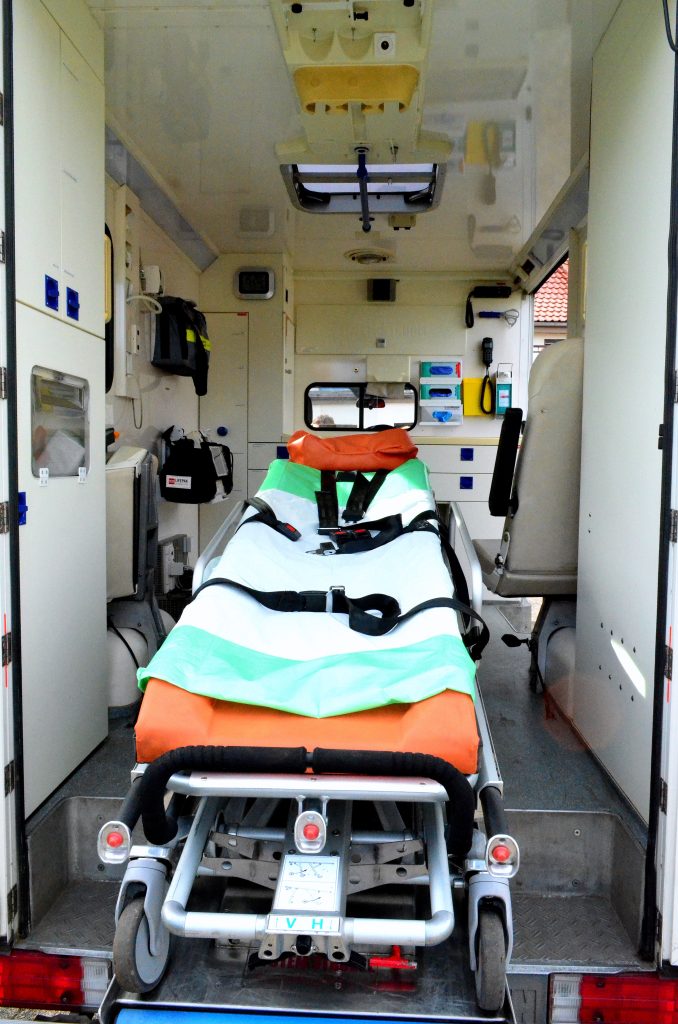 Medical emergencies call for swift and professional response from emergency medical personnel. However, what happens when a patient sustains additional injuries during transit due to unforeseen circumstances? The following case highlights the complexities of dealing with immunity laws for government employees and emphasizes the importance of seeking legal counsel to navigate statutory requirements and potential exceptions when considering legal action in such situations.
Medical emergencies call for swift and professional response from emergency medical personnel. However, what happens when a patient sustains additional injuries during transit due to unforeseen circumstances? The following case highlights the complexities of dealing with immunity laws for government employees and emphasizes the importance of seeking legal counsel to navigate statutory requirements and potential exceptions when considering legal action in such situations.